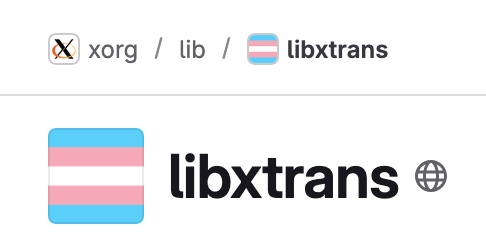Here is a quick series of frequently asked questions about the X11 session kissing us goodbye. Shoutout to Nate from which I copied the format of the post.
Is Xorg unmaintained and abandoned?
No, the Xorg Server is still very much maintained, however its feature development is halted. It still receives occasional bugfixes and there are timely security releases when needed.
The common sentiment, shared among Xorg, Graphics, Kernel, Platform and Application developers is that any future development is a dead-end and shortcomings can’t be addressed without breaking X11. That’s why the majority of Xorg developers moved on to make a new, separate, thing: Wayland.
In doing so, Xorg main focus became to be as reliable as possible and fix security issues as they come up.
It’s the same people that still maintain Xorg. Thanklessly.
If you are interested in Xorg’s history I can’t recommend enough this timeless talk by Daniel.
What will happen to Xorg?
The Xorg server is still there and will continue be maintained. Of course with GNOME and KDE transitioning away from it, it will be receiving even less attention but none of this has a direct impact on your other favorite X11-only desktops or means they will magically stop working overnight.
Your favorite distribution most likely will still keep shipping Xorg packages for a couple more years, if not decades. What’s going away is the GNOME on Xorg session, not the Xorg server itself.
Why did GNOME move to Wayland now?
Early during the GNOME 46 development cycle I created the gnome-session Merge Requests in an attempt to gather feedback from people and identify leftover issues.
48.rc addressed the last big remaining a11y issues, and Orca 48 is so much nicer, in large part thanks to funding from the STF and Igalia donating a bunch of work on top of that to get things over the line. With the functionality of the Wayland Session now being on par (if not straight up better) than Xorg, we all collectively decided that it was time to move on with the removal of the Xorg session.
However 48.rc was also too late to plan and proceed with the removal of the session as well. In hindsight this was a good thing, because we found a couple very obscure bugs last month and we’d have to rush and crunch to fix these otherwise.
On May 6th, we held a meeting among the GNOME Release team. We discussed the X11 session, among other things. There was one known issue with color-calibration but a fix was planned. Discussed timelines and possible scenarios for the removal and pointed out that it would be a great opportunity to go ahead with it for 49 which aligns with 25.10 release, rather than postponing to GNOME 50 and the upcoming 26.04 LTS. We set the topic aside afterwards as we’d wait for upcoming feedback from the Ubuntu team which had a planning meeting scheduled a week or so afterwards.
On May 19th we (Release Team) held another meeting, picking up the X11 topic again. While we didn’t have a concrete decision from the Ubuntu side on what they’d plan to do, there also were not any new/unexpected issues or usecases from their side, so overall good news. Thus Adrian and Myself continued with the preparations for disabling the X11 sessions for 49.
On May 20th FESCO approved the proposal to remove the GNOME on Xorg session for Fedora 43.
June 1st I started working on a, earlier than usual, 49.alpha release and 3 days later I got a private confirmation that Ubuntu would indeed follow along with completely disabling the Xorg session for 49, matching the upstream defaults.
Late night June 7th, more like morning of the 8th and after dealing with a couple of infrastructure issues, I finished with all the preparations, tagged 49.alpha.0 for GDM, gnome-shell, mutter and gnome-session and published the announcement blogpost. 2 days later Ubuntu followed suite with the public announcement from their side.
Will my applications stop working?
Most application toolkits have Wayland backends these days, however for those that do not, we have XWayland. This let’s X11-native application keep running on Wayland as if they were using an X11 session. It happens transparently and XWayland will be around with us for decades. You don’t have to worry about losing your applications.
Is everything working for real?
GNOME on Wayland is as functional as the Xorg session and in plenty of cases a lot more capable and efficient. There’s some niche workflows that are only possible on X11, but there isn’t any functionality regression.
What’s the state of accessibility?
There has been a lot of concerned trolling and misinformation specifically around this topic sadly from people that don’t care about it and have been abusing the discourse as a straw man argument. Drowning all the people that rely on it and need to be heard. Thankfully Aaron of fireborn fame wrote recently a blogpost talking about all this in detail and clearing up misconceptions.
GNOME itself is already there when it comes to accessibility, but now next task will be rebuilding the third-party tooling (or integrating them directly when possible). We now have a foundation that allows us to provide better accessibility support and options to people, with designed solutions rather than piles of hacks held together by duck tape on top of a protocol from the 80s.
Is Wayland Gay?
Yes and Xorg is Trans.
Happy Pride month and Free Palestine ✊
